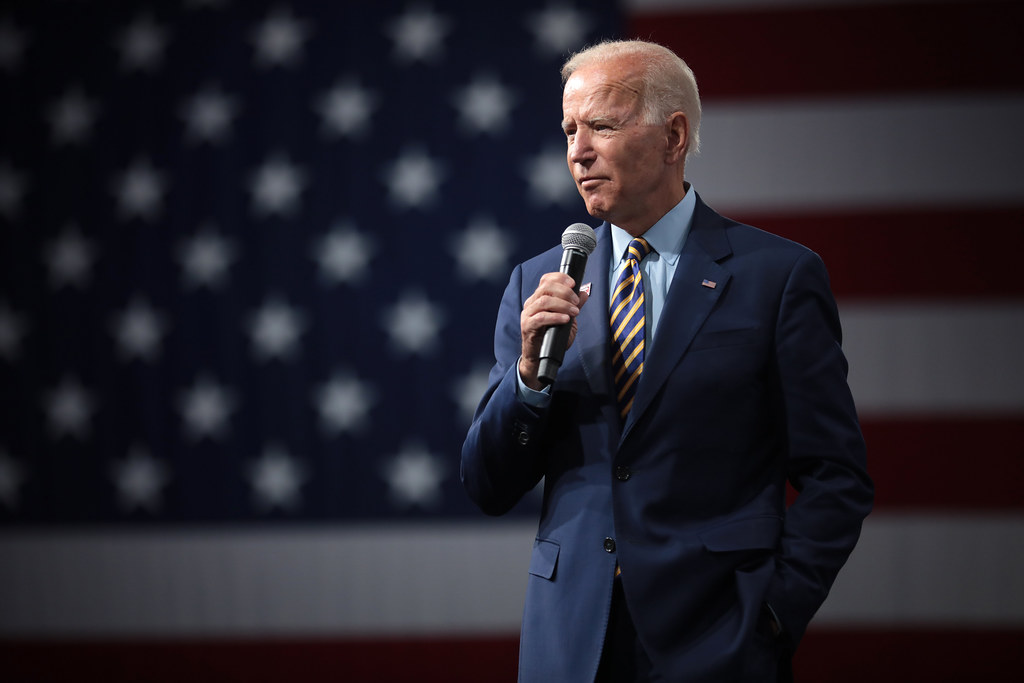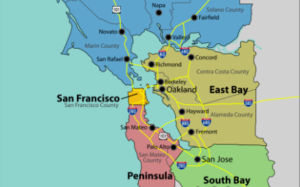Due to the coronavirus outbreak, the 2020 Presidential Primary came to a sudden pause in late March. As the crisis continued, it became increasingly evident that former Vice President Joe Biden would become the Democratic nominee. How did we get here, and what will a Biden nomination mean for November’s general election?
Much of Biden’s success in the 2020 primary race can be traced back to his victory on Super Tuesday, which took place on March 3. Arguably the most important day in the primary, Super Tuesday held contests for fourteen different states this year. After the votes were counted, Joe Biden had made a historic comeback after his poor showing in the earliest primaries in Iowa, New Hampshire, and Nevada. His staggering victory allowed him to reemerge as the likely nominee for November’s general election. Biden won ten crucial states, becoming a clear frontrunner for the Democratic Party and establishing himself as a contender for President of the United States.
Since the modern primary electoral process began in 1976, Super Tuesday has always been an important day for Democrats and Republicans to decide who should represent their party in the general presidential election. Because of the diverse collection of states that take part in primaries, the results of Super Tuesday are usually indicative of the opinion of the country as a whole. Thus, it serves as a way for a party to unite around a single frontrunner. For example, on Super Tuesday in 2016, both Hillary Clinton and Donald Trump established themselves as near-certain nominees for their respective parties.
This Super Tuesday, Democrats from around the country exercised their quadrennial chance to vote in a presidential primary. The roughly 14.5 million Americans who voted that day hailed from fourteen different states and one U.S. territory. 1,357 delegates were up for grabs, meaning over one-third of the primary race’s total delegates were awarded in just one day. With a Republican in the White House with hopes for a second term, Democratic voters finally had the chance to rally behind one candidate who could take Trump down in November. The question on everyone’s mind, though, was who that one candidate should be.
The 2020 primary election has been marked by a particularly crowded pool of Democratic candidates. Even by Super Tuesday, when the pool is usually narrowed down to two or three candidates, five Democrats were still in the running. Though all of the candidates shared the common goal of removing Trump from office and reimplementing liberal policies on a national scale, the party had yet to rally around a single candidate.
In the first three primary elections that preceded Super Tuesday, Senator Bernie Sanders was the stand-out candidate. The elections began on February 2 with the Iowa Caucus. Mayor Pete Buttigieg had technically won this opening primary, but Sanders won that election’s popular vote. Sanders then had sweeping victories in the two contests that followed, New Hampshire on February 11 and Nevada on February 22.
Meanwhile, Biden was struggling to build support for his campaign. In the months prior, he had fallen in the polls significantly from his pre-debate season expectations. His lack of a strong base manifested itself in poor performances in early voting. He scored fourth and fifth in Iowa and New Hampshire, respectively. Even though Biden rose to second place in Nevada, Sanders had over double the number of votes that Biden received.
In the debate that followed Nevada’s February 22 primary, moderate candidates like Pete Buttigieg, Amy Klobuchar, and Mike Bloomberg went after the then-frontrunner Bernie Sanders. To work towards nominating a more moderate candidate, they attacked Sanders’ progressive policies as unreasonable and disunifying. After the debate, Klobuchar and Buttigieg dropped out and endorsed Biden, effectively unifying the moderate side of the Democratic Party just before the South Carolina primary on February 29. These tactics proved to be successful for the moderate side of the party, as Biden won in South Carolina by a large margin. About 50% of the South Carolinian electorate supported the former Vice President. His big win was largely due to South Carolina’s black voters. The state has a significantly different demographic from the earlier primary states. Iowa and New Hampshire are dominantly white, Nevada is more racially diverse with a significant Latino population. The African-American vote proved influential in the South Carolina primary. According to an NBC News exit poll, 61% of black voters chose Biden that day.
Biden’s win in South Carolina further complicated the Democratic primary as Bernie and Biden were now equally likely to win the nomination. Meanwhile, Elizabeth Warren was still going strong after decent showings in previous contests, while Mike Bloomberg was still growing support for his campaign. Everything was on the line on Super Tuesday for all four candidates.
Entering Super Tuesday, the lack of a clear frontrunner strengthened the divide between leftists and centrists within the Democratic Party. More progressive candidates like Bernie Sanders and Elizabeth Warren tried to gain support through their pleas for fundamental change, while moderates like Joe Biden and Mike Bloomberg attempted to unite the party to create a larger voter base for November’s election. To many people, the primary felt like an ideological battle between those who supported political revolution and those who believed in working for change from within the party. Lick student Rafe Hessekiel ‘20 observed just before Super Tuesday that “The divide between Bernie and Biden supporters is really large right now. I’m worried about what this could mean for the general election, whether the division in the party right now could give Trump another four years in office.”
For Democratic voters, so much seemed to depend on the results of the Super Tuesday vote. Would the party leap to fundamental change or slower, deliberate progress? That day’s fifteen elections would determine which type of candidate around which the party wanted to unify.
As anticipation for Super Tuesday grew, the nation looked towards California, arguably the most important of the fourteen states voting that day. Due to its large population, the state controls 10% of the nation’s delegates, making it the single-most impactful
primary of the election season. Also, as a strong blue state, winning California would hold a lot of significance for the remainder of the primary race. Due to the significance of the California primary, Sanders, Biden, Warren, and Bloomberg all held rallies around the state in the days leading up to the election.
With such an important primary happening in California, attention around the Presidential Primary grew at Lick-Wilmerding as Super Tuesday approached. While some students just discussed the candidates and their policies, others became very involved in the election. For example, Max Rostaing ‘22 had been a fervent Bernie Sanders supporter throughout his campaign.
“I’ve made calls for Bernie, gone to his rallies, knocked on doors, and done a lot of volunteering for him,” said Rostaing, who believes that everybody, including people that can’t vote, should stay politically active and aware in today’s climate. “To me, staying politically active is important because it’s about our future. If we don’t pay on in politics, we’ll have no idea what’s coming for us later,” he said.
According to a Paper Tiger poll conducted two days before Super Tuesday, 35% of Lick students joined Rostaing in supporting Bernie Sanders. In the poll, Sanders supporters showed their admiration for his ambitious visions, as well as his experience and history as a liberal lawmaker. “Bernie has been on the right side of history for his entire life,” said Rostaing. “All of the other candidates have had to evolve on almost all of their issues, but Bernie has always been consistent with his ideas.”
Others were more apprehensive about Bernie being the nominee. “A few of the drawbacks I see to nominating Bernie Sanders would be how it would change the fundamental values of the Democratic Party, and begin to represent extreme left values which don’t necessarily represent the majority of American people,” Ananya Sridhar ’21 said. “I think a lot of moderates are beginning to feel lost by the rise of more extreme politicians on both sides of the spectrum, and I think the more this process continues, the more Americans feel like there isn’t someone in the race that reflects their values.”
Elizabeth Warren was the second-most favored candidate at Lick with 29% of the vote. Students said they admired Warren’s compassion, charisma, and intelligence. Warren supporters were generally concerned about climate change and the economy, while Sanders supporters were more likely to care deeply about health care and wealth distribution.
Joe Biden received only 11% support from the Lick community. Students who supported Biden were most likely to favor him specifically due to his ability to defeat Donald Trump in November. 78% of Biden supporters saw his electability as his most appealing quality.
LWHS Biden supporters also generally appreciated his ability to work across party lines and reunify the nation. “I think Joe Biden is the best option for President because I think the country will greatly benefit from moderate leadership during a time of such political polarization,” said Sridhar. “I think given Joe Biden’s years of political experience, a Biden administration could help heal some of the political divides that are creating conflict.”
Despite Joe Biden’s relatively low support from the Lick community, the nation showed their support for his campaign on Super Tuesday. He won ten of the fourteen states, frequently beating the second-place finisher by a significant margin. In the states that Bernie Sanders won, Biden wasn’t far behind and still took home a significant number of delegates in each one. For example, in California, Sanders won the primary itself, but Biden still claimed 165 delegates. By the end of the night, Biden received 47% of the delegates up for grabs, even though he was one of five candidates still running.
After Biden’s success on Super Tuesday, it seemed that the tide of the race had completely turned in his favor. In mid-February, he had scored fifth in New Hampshire. Just weeks later, he won ten states on the most important day of the primary race, becoming a clear frontrunner for the Democratic Party. The momentum Biden gained on Super Tuesday would make it difficult for any other candidate to win the nomination. FiveThirtyEight determined that Biden had a 96% chance to get the nomination after his Super Tuesday win.
As the primary race marched on, Biden continued to dominate. He won five out of the six states on March 10, one week after the primary. Another week later, on March 17, Biden won all three contests. The coronavirus pandemic prevented the primary race from continuing at full speed, giving Biden an even stronger chance to maintain his lead and coast his way into winning the Democratic nomination.
Bernie Sanders dropped out of the race on April 8, solidifying that Biden had won the primary race.
Even as a Bernie supporter, Hessekiel sees the benefit in nominating Joe Biden. “He’s a very likeable candidate, and he’s somebody voters can connect to on a personal level. I also think he’ll be able to work with Republicans and get things done as President.”
Others are more worried about Joe Biden leading the ticket for the Democrats. “I don’t think that the Democratic Party can run the same moderate campaign to beat Trump like we did in 2016,” said Rostaing. “We can’t afford to make that mistake again.”
Whether or not Vice President Joe Biden can lead the Democratic Party back to the Oval Office is still up for debate. We’ll just have to wait until November to find out.






